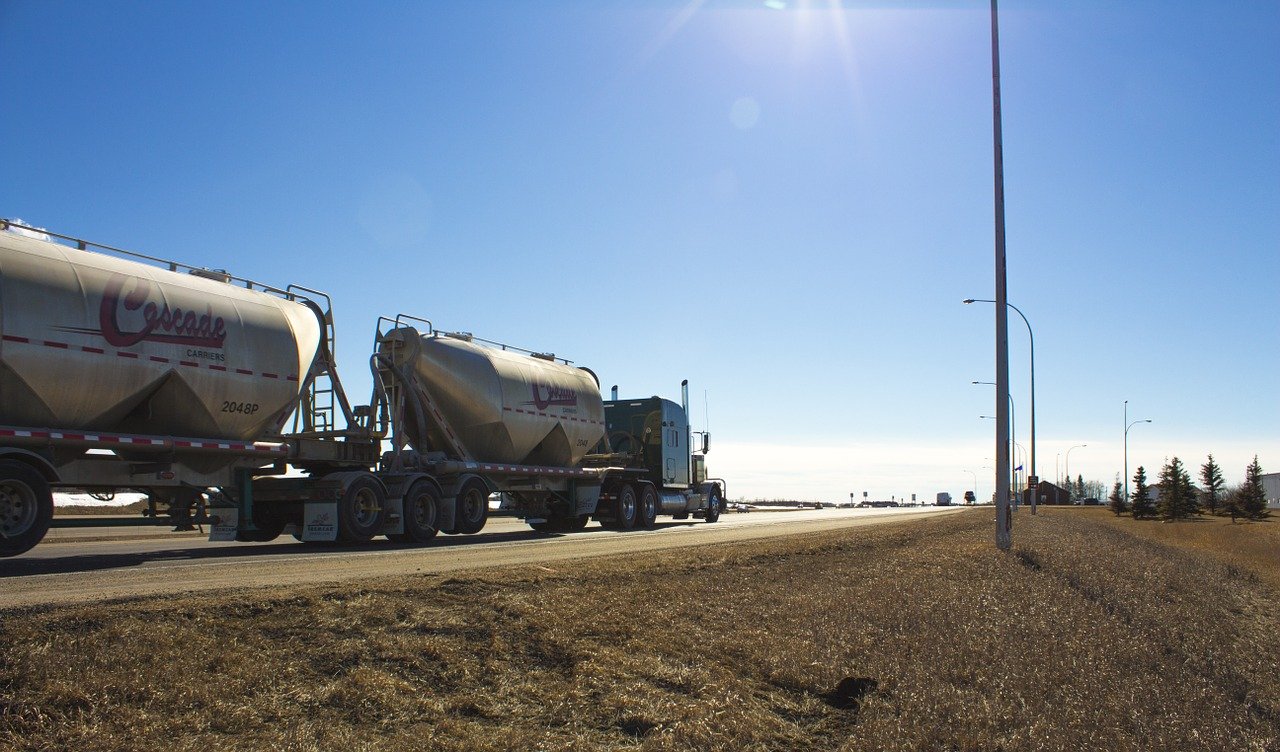New Technologies Can Help Truckers Decrease Fatigue and Accidents

Veterans of the trucking industry like Juan Ochoa, who currently manages a group of about 80 long-haul trucks in Kent Washington, estimate that roughly seventy percent (70%) of all trucking accidents are caused by fatigue. Ochoa also asserts that once truck drivers become too tired, they’re no longer able to respond quickly enough to road dangers.
Aware of this problem, many businesses are now creating and marketing products that can help truckers remain fully aware of when they’ve become too drowsy to drive. Dr. Daniel Bongers’s Australian company SmartCap currently markets a line of industrial safety products that can help most truckers know when it’s time to pull off the road and rest for a while.
What follows is a review of some of the current products that truckers can use to help them learn how to schedule longer nights for sleep and more frequent rest periods during their days. There’s also a brief look at industry changes that could help truckers earn more without having to spend so many long days out on the road.
Wearable tech devices come in many sizes and shapes
Although mandatory electronic logging devices are now mounted in most trucks to keep track of all daily driving hours, some truckers keep trying to drive beyond the limits. Here’s a look at some of the wearable devices that can remind drivers when they may be about to fall asleep.
- Optalert has created glasses for truckers. They help by using an LED light monitor to measure a driver’s eye-blinking patterns. Research has shown that when a person’s eyelids start dropping down too long, they could be falling asleep or becoming too drowsy to drive. A device mounted on the truck’s dashboard provides real-time measurements and alerts to help drivers wake up more fully and consider pulling off the road at the next rest stop;
- The Maven Machines headset. When worn properly, this device can tell if a driver is looking forward, through the windshield – or off to one side or downwards. It can also record how many times the driver looks at one of the truck’s many mirrors – a common habit of fully alert drivers. Based on the headset readings, drivers can even be alerted if they begin exhibiting “head bobs” or jerking motions, signs of impending sleep.

- The SmartCap “headband” device. This can be worn in a trucker cap, beanie or other headwear. It’s been designed to measure brain waves so carefully that it can detect alertness or fatigue. Alerts are transmitted to the driver regarding these dangers;
- A device called “The Guardian,” made by Seeing Machines. This product uses a black cylinder containing a camera that’s mounted on a truck’s dashboard. It uses special algorithms to measure where a driver keeps looking while driving. The Guardian can send audio alerts to drivers — or even cause the truck seat to vibrate as a warning, that the person may be about to fall asleep. This device can also send a warming message to a monitoring station that the driver must be immediately notified before possibly causing an accident;
- Fatigue Science software is designed to measure sleep quality. Truck drivers who wear these devices can measure both the quantity and quality of sleep they’re obtaining each night. Although this is mainly used to help drivers (and their companies) know in advance how fit they are to drive on a specific day, it also readily helps companies justify reassigning drivers to different shifts on other days. This product clearly offers a great way to prevent many accidents. Companies can also choose to step-in and provide helpful medical or psychological services so employees can try to improve their sleep quality;
- Other special cameras with software can be used that are directly linked to insurance companies. Mr. Ochoa, already referenced above concerning the 80 long-haul trucks his group manages, uses this type of system. It can videotape trucker behavior, especially after the system detects sudden truck accelerations or braking efforts. It can also record what has happened after a driver’s sharp turns. When all of a company’s drivers know that they’re being monitored this closely and could lose their jobs if they fail to drive safely – most of them will probably make sure to obtain plenty of good sleep before checking in prior to leaving on a long truck haul.
Although many of these devices can put truck drivers (and those they haul goods for) on notice concerning their poor driving habits – or chances of soon falling asleep at the wheel – other experts indicate that additional measures are still required. They say that truckers wouldn’t want to keep driving longer hours if they knew that they were being paid fairly for all their time.
Academics like Dr. Karen Levy suggest other measures are required to help truckers
Dr. Levy is a Cornell University professor who has specialized knowledge of the trucking industry. She says that what might help most is making sure that all of America’s truckers are properly paid for their time during every shift. At present, a large percentage of truckers are forced to wait many hours – off the clock – while their truck goods are both loaded and unloaded. She believes that all companies should be required (through proper incentives) to pay truckers for all these waiting hours.
Maintaining the current system that doesn’t compensate truckers for all these weekly waiting hours naturally makes them want to make up the time on the road. If all companies that employ truckers were required by the government to pay for each trucker’s daily waiting time, we would surely see many drivers trying to spend less time on the road. And the current time wasted in loading bays would surely be greatly reduced.
Dr. Levy also notes that all this waiting time greatly adds to trucker fatigue. As already clearly referenced above, this fatigue accounts for a very high percentage of truck driving accidents.
If you’ve been seriously injured in an accident caused by a truck driver, you need to immediately contact our New York City truck accident law firm. Our firm will carefully investigate the facts surrounding your accident so we can build a strong case on your behalf. We’ll fight hard to win the maximum compensation available so you can recover for all your lost wages, pain and suffering, medical expenses and other losses.



